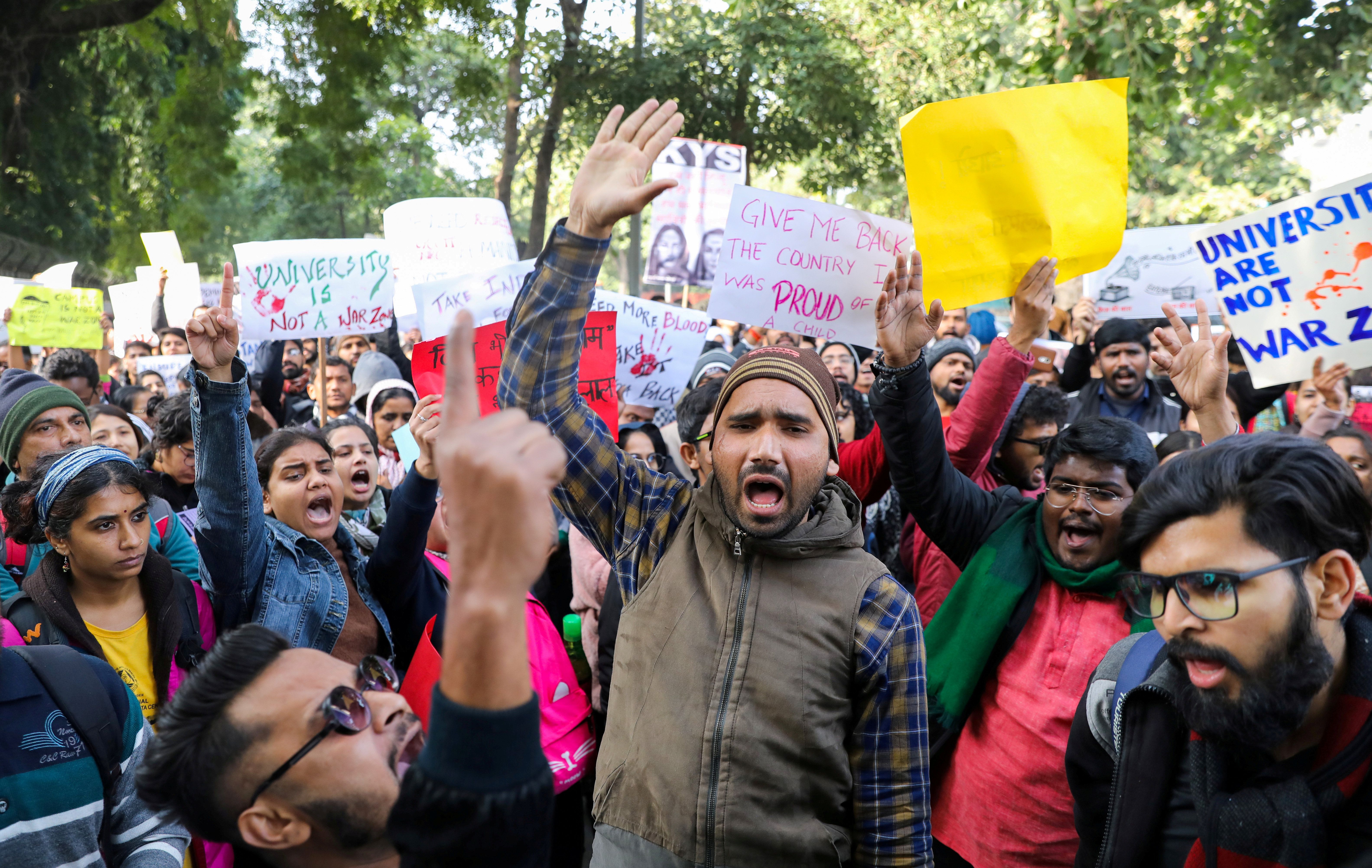Indian students' outrage – At least 40 people were admitted to hospital Sunday after mask-clad attackers descended on the Jawaharlal Nehru University (JNU) in New Delhi, striking students and staff with stones, sticks and iron rods. Many have blamed the attack at JNU – long associated with left-wing student activism – on a Hindu nationalist student body associated with Prime Minister Narendra Modi and the ruling BJP. Now, thousands of protesters across the country have flocked to the streets, accusing police of failing to intervene as more than 50 attackers bludgeoned students, and for failing to arrest members of the violent mob. The incident comes at time of enhanced ethnic tensions in India amid the government's controversial citizenship bill, seen by many as anti-Muslim. If the government continues to remain mum on this attack, it will surely only inflame tensions further.
Calamity in Kenya – Kenya is on high alert after a spate of regional attacks by the Somalia-based al-Shabab terror group, an offshoot of al-Qaeda loosely aligned with Iran. Three Americans were killed in an attack on US and Kenyan troops in Manda Bay Sunday, about a week after al-Shabab militants blew up a truck at a busy intersection in Mogadishu, Somalia's capital, killing 80 people. The violent uptick in Kenya is a reminder of the deteriorating situation in neighboring Somalia – one of the world's most fragile countries – and militant groups' knack for taking advantage of the region's porous borders to mobilize fighters and wage attacks. About 300 US army personnel are stationed in Kenya, helping train local forces fighting homegrown terrorist cells. It's worth noting that the Pentagon is reportedly contemplating a major troop reduction in West Africa as part of President Trump's planned military pullback – a move that would allow extremist groups to proliferate throughout Africa, some military officials have warned.
Facebook's bad week – Despite sustained pressure from US lawmakers, Facebook announced Thursday that it will not make any changes to its rules surrounding political advertising, a controversial policy that allows politicians to lie in ads. The tech giant also said it would not put an end to "microtagging," giving political campaigns a green light to continue targeting their ads – and disinformation – at subsections of the public. Facebook executives defended the move on free speech grounds, but this decision will have far-reaching consequences for online advertising campaigns anticipated in this year's election (estimated at over $1 billion). This announcement came a day after the tech behemoth and Teen Vogue magazine were panned for "placing" a lofty online article praising Facebook for fighting misinformation ahead of the 2020 presidential election, failing to disclose that the piece was in fact paid Facebook content. All eyes will now be on the US Congress, but election-related regulation for the tech industry has stalled in the extremely fractious legislature, and that's unlikely to change.
What We're Ignoring
A new US-Iran nuclear deal – The US says it's "ready to engage without preconditions in serious negotiations" with Iran following this week's hostilities. President Donald Trump says he wants a new nuclear deal to replace the existing version negotiated by his predecessor with Britain, France, Germany, China, and Russia. If Trump wins re-election in November, Iran will have to consider its options. But we can safely ignore this invitation for now. Iran, which has proven its ability to absorb economic pain many times over the past 40 years, has no interest in offering fundamental concessions to a man who may not be president next year. It took former President Obama many years to force Iran's government to the bargaining table. Iran knows Trump may not have that long.
